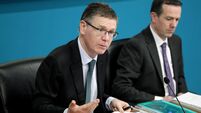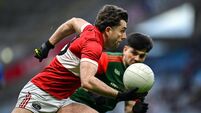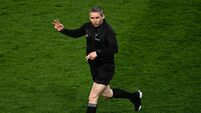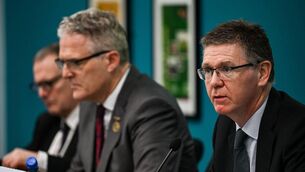An audience with Billy Joyce: 'Did you ring the airport? I don’t want to go tangling with airplanes'

LEGENDARY STATUS: Billy Joyce, Galway football legend during an interview with the Irish Examiner's Maurice Brosnan.
Even heroes have heroes. No one would suggest that Galway’s figurehead Pádraic Joyce is sentimental, but he is a student. Amidst a wide arsenal the standout skill as player or manager has always been an unyielding spirit. A value learned.
Joyce holds a keen sense of where he is from and why it matters. Galway football, his obsession and heritage. A calling. His uncle Billy Joyce summarises that essence with a smile. In 2004, he sat in Croke Park as his nephew led Ireland to International Rules victory against Australia. Pádraic made for the Hogan Stand to lift the inaugural Cormac McAnallen Cup, Billy hit the road to prepare for a club league game. He was Killererin manager and they were due to head west to Carna/Cashel the next day.










